
As I ring in 2012, I actually feel like I'm finally part of the digital age. (Is that even the correct terminology? I don't know. I'm not technologically savvy. But I like to pretend that I am). So, I received some of those pre-paid credit card/gift cards from family for Christmas. And now I was left with the big decision ~ What's a girl to do with a bunch of gift cards? Decisions, decisions. Of course, I had a gazillion ideas running through my head ~ a new watch, an I-pod, jewelry, clothing, boots, the possibilities were endless. And because I actually have a job this year and don't need to rely on gift cards to buy toothpaste and shampoo, I decided that this year I wanted to spend those gift cards on an actual "gift," something that I would never in a million years decide to buy for myself.
So, of course, I found myself in Target this week (I actually found myself there four times this week) because I really did need toothpaste and shampoo. While I was there, I decided to venture into the electronics section. For anyone who knows me, you know that this is a huge deal. I'm like a fish out of water in that department, flopping helplessly away as I try to wrap my strained mind around the purposes and uses of these gadgets and gizmos. I was originally there to look at the I-pods, but I wasn't convinced that I wanted one. Then something drew me to the Kindles. I started looking at the Kindles and playing around with the demo pieces they had on display. And lo and behold, I suddenly had an urge to buy a Kindle Fire. It was speaking to me, "Pick me, pick me." I don't know why or how I suddenly became enamoured with the Kindle Fire. But the next thing I knew, I was traveling all over the State of Connecticut in search of the last retailer on the planet who just happened to have the last Kindle Fire in stock. No one had one. But that's okay because Amazon did! Woo-hoo! And it was on my doorstep by Thursday afternoon.
Like I said, I'm not technologically savvy, but I have to toot my own horn for a minute. I am quite impressed with my digital prowess as of late. I know nothing about routers, modems, Wi-Fi, what-have-you; but I had that Fire set and ready to go and hooked up to Wi-Fi in less than two minutes. I love how it's so easy to use and so easy to navigate through.
 So now that I have this new toy, I have to "train" myself to read digital books as opposed to "real" books. I've always been resistant to e-readers in the past because I was afraid to lose that connection to books, the overall charm and nostalgia of sitting down with a good book in my hands, turning and flipping through the pages, blah, blah, blah. But I actually took to it like a fish to water. I was no longer flopping helplessly. I was swimming!!
So now that I have this new toy, I have to "train" myself to read digital books as opposed to "real" books. I've always been resistant to e-readers in the past because I was afraid to lose that connection to books, the overall charm and nostalgia of sitting down with a good book in my hands, turning and flipping through the pages, blah, blah, blah. But I actually took to it like a fish to water. I was no longer flopping helplessly. I was swimming!!Because I get a free month of Amazon Prime with my new Kindle Fire, I decided to take advantage of its perks and benefits and "borrowed" a book from the Kindle borrowers' library to sort of ease myself into this new e-reader experience. My induction began with 7 Days to Say I Love You. It had gotten a solid 5-star review, which is why I gave it a shot. It's no literary masterpiece by any means, and there are quite a few misspellings and grammatical errors; but it's an okay story. It's a memoir of a man's experience with watching his father die of liver cancer and how he has just a short amount of time left to tell his father that he loves him. It's an easy, quick read and was a good way to get myself started on my e-reader journey; but it's certainly not a memorable read.
 I also got caught up with a few non-digital books that I had been hanging on to and had never gotten a chance to sit down with. I zipped through The Paris Wife by Paula McLain. It's historical fiction based on Ernest Hemingway's first marriage and told from the perspective of his first wife. Again, I got the book because the reviews were good; but sadly, this one was not memorable for me either. There wasn't a whole lot of information driving the story. And really, there was no story here. It's just a constant back and forth from Paris to Switzerland to Spain, writing, skiing, and bullfighting. I had trouble finding the author's purpose. Was I supposed to feel sorry for Hadley Hemingway? because I didn't. I'm sorry your husband was a struggling artist. But how much could they have been struggling? They lived in Paris, vacationed in Spain and Switzerland, left their child to be raised by several nannies and partied and got drunk every night. Ah, well. To each his own. The book was just really flat.
I also got caught up with a few non-digital books that I had been hanging on to and had never gotten a chance to sit down with. I zipped through The Paris Wife by Paula McLain. It's historical fiction based on Ernest Hemingway's first marriage and told from the perspective of his first wife. Again, I got the book because the reviews were good; but sadly, this one was not memorable for me either. There wasn't a whole lot of information driving the story. And really, there was no story here. It's just a constant back and forth from Paris to Switzerland to Spain, writing, skiing, and bullfighting. I had trouble finding the author's purpose. Was I supposed to feel sorry for Hadley Hemingway? because I didn't. I'm sorry your husband was a struggling artist. But how much could they have been struggling? They lived in Paris, vacationed in Spain and Switzerland, left their child to be raised by several nannies and partied and got drunk every night. Ah, well. To each his own. The book was just really flat.
A book that definitely was not flat and will stick with me for some time is Jenna Blum's Those Who Save Us. This one is hauntingly disturbing but a great read. It really highlights and details the unfathomable challenges and decisions people were faced with during WWII just to secure their own survival.
Phew! There was a lot to say, but I suppose that's because I've been out of the scene for a while. Here's to 2012 and to hopefully it being just as successful or even more so than 2011. Happy New Year!







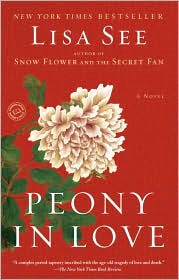

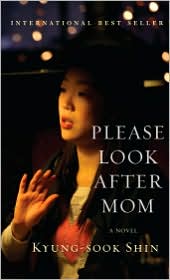
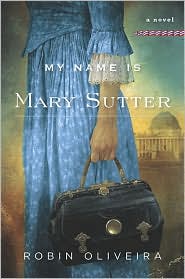
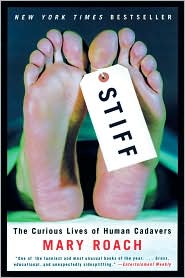

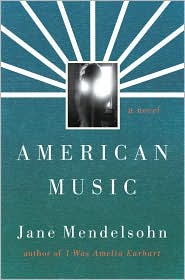






.jpg)






